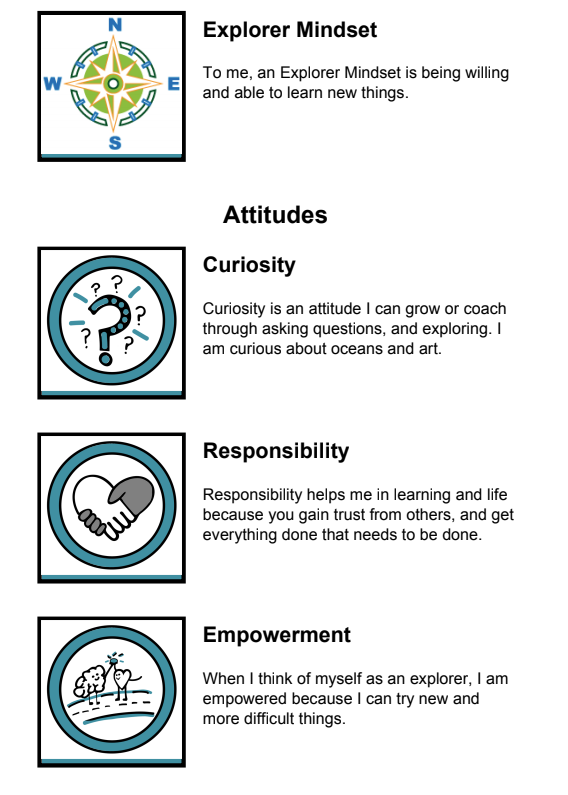
Second Graders set up their OWN lab station after a heavy rain to investigate rain water deposits. Their initiative here is a direct result of the Explorer’s Mindset

Mrs. Schnekser uses a 360 camera in Galapagos to collect VR content. This photo has a great story about interactions with endemic sea lion pups which bring students on expedition as part of the Expedition Team.
Being an Explorer is the foundation of my educational philosophy and the science program I created at my current school. I wholeheartedly believe that learning, especially science through completing authentic tasks and field studies is the way to go! By creating authentic experiences for students, they see themselves as explorers rather than just students who have to learn concepts about science, or whatever topic they are studying. In the last two years, and for as long as I can in the future, I complete field expeditions alongside scientists in order to learn, grow, and scale for my students. Last summer, I joined Andres Ruzo and the Field Season 10 team in the Peruvian Amazon to study thermal river systems. By first seeing me in the field, my students immediately began to identify themselves as explorers along with me as I shared stories, pictures, and VR content I created with this initial expedition. With the experience I gained and lessons learned in the field, I even replicated the actual thermal river system we studied in my lab, while I cannot very well bring my students to a boiling river in another content during my class time. Along with replication of the trek, conditions, and data collection for my students, we also constantly practice important skills that cross-curricular lines such as communication and organizing information in a variety of ways. We all know that communication is an important life skill, but in the field this importance was even more apparent when it came to collecting and analyzing data, but for literal survival in the wild as an expedition team. Whenever I can, these are embedded into our laboratory activities whether it be through delegating tasks within teams, trading notes to complete tasks, or practicing multiple ways to organize data and anecdotal note

Here is a 360 image of Mrs. Schnekser on expedition in Galapagos, collecting images for VR content creation!
s collected during our activities. Any chance I get, I bring my students into the field, whether that takes the form of our school’s campus, gardens, local waterways, or longer, weekend excursions to complete fieldwork. When bringing students into the field is not possible, I replicate it in the lab. For a few weeks this year, my laboratory was literally transformed into a 5 cave system with different biodiversity sets inside for students to climb into (yes, with knee pads, field notebooks, and headlamps), investigate, and record datasets for use later. Each day they visited, the data set was different. This helped accomplish a few tasks. Students learned the importance or organized and clear data collection and some learned the hard way that if they skimped here, the next step of the investigation was going to be difficult. I also had them trade notebooks for the next part of the project, while oftentimes in the field, the data work you complete one day is “out of your hands” the next, so your accuracy, organization, and communication skills were extremely important. They also found that the days we analyzed our data, the caves were no longer assembled meaning, they could not revisit to check for accuracy. This is the case in the field while you oftentimes have one opportunity to collect a dataset per day–there is no room for laziness or inaccuracy. This is a hard lesson for many students and often creates conflict within field teams. Another skill they need to constantly practice; conflict resolution and learning from mistakes to move forward. There is so much more I can add here, but you can see that the Explorer Mindset quickly encompasses so many aspects of teaching and life skills, I cannot imagine NOT using it as my pedagogical compass.
Through all of these expeditions with students, using the Explorer’s Mindset, they have become empowered to create their own investigations, plan, and implement them with me as a guide on the side rather than the Principal Investigator. As educators, this is our goal, to empower students to become advocates of their own learning and to be self directed. This is the best way to achieve this goal or at least, constantly make progress towards it with learners of all ages.
Follow Becky on Twitter: @schnekser #expeditionschekser
Read Becky’s Strategy Share Here

